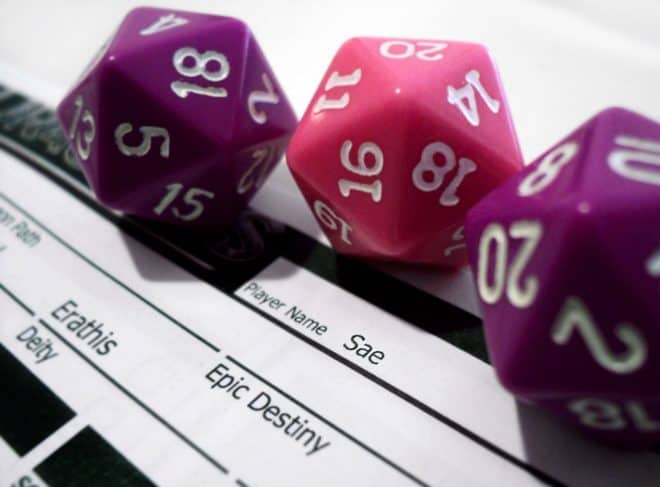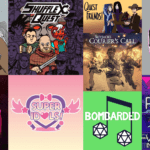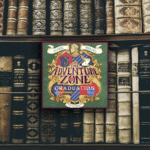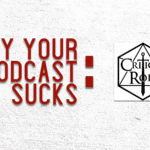Dungeons and Dragons and Distinction

Nerds love their things. Above all else, they love the things they love with an undying passion—and they always want more. More movies, more episodes, more artwork; and when there isn’t any more, they make their own.
So it makes sense that nerds who love Dungeons and Dragons would listen to podcasts about D&D and, when their feed runs out, they would make podcasts about D&D and roleplaying games. This is why there are approximately a bajillion real play (as in “really playing the game”) podcasts currently on Apple Podcasts.
I am one of these D&D nerds, and I’m always looking for a show that will stand out, a new premise I never considered that will hook me. But when I look at the Apple Podcasts charts, one question rattles around in the back of my mind: have we flooded the market? Are there too many D&D podcasts—and did we make that happen?
But I don’t think there are too many D&D podcasts. I think there are too many of the SAME D&D podcast.
Here’s what I mean: DnDnD—from Practical Folks, who make the Drunk Disney YouTube series—barrelled into the scene, posting at a brisk twice-a-week pace. What caught my 20-sided eye was the third D. It stands for Dinner.
Oh, damn! This could be a multi-medium podcast, where the skills are based on dice rolls and flambé. Maybe it’s The Adventure Zone meets Iron Chef! Or maybe it’s a dinner party scenario, like a reoccuring murder mystery party, featuring a new menu AND a new gripping story every week. OR MAYBE all the characters are homebrewed versions of classic chefs! (Julia Child is a champion fighter if I’ve ever seen one).
The players and their Dungeon Master are quick on the draw, and the obscene old lady named Margarine is someone I wish was in my party. The gameplay is freewheeling and a lot of it feels loose and fun. But the show isn’t unique.
It turns out, the Dinner means the players and DM have eaten a meal beforehand and tell us about it. There’s no tie-in to the plot, characters, or gameplay; that’s it. The show follows a similar path to the many, many podcasts in the ever-growing real-play genre. A bunch of friends—this time, six—meet up and play D&D on mic, make silly jokes, and do heroic things.
The D&D podcast is the epitome of public misconception about how much work goes into making a podcast. The first real play podcast, Acquisitions Incorporated, was admittedly low-fi: the famous nerds of Penny Arcade put a mic down on a table and recorded it. And the most popular shows about D&D—the McElroys’ The Adventure Zone, the creative juggernaut that is Critical Role, and the streaming content from D&D’s parent company Wizards of the Coast—feel effortless because of how freaking talented everyone is at the table. But they are a lot of work: editing, scoring and sound design, and the dozens of hours of prep that DMs put into every single episode. This effortlessness is evidence of the low bar of entry to podcasting in general, but disguises the extremely high bar of success and quality that make these shows so great.
Related reading: 7 Fantasy Podcasts Beyond “The Adventure Zone”
This can be enough to make a hit show—if your players are outstanding comedians or voice actors or if you’re the first of your kind. But, In 2018, no team of podcasters can walk in with the only goal of, “I’m going to be Critical Role!” or “I’m going to be The Adventure Zone!” Honestly, no one should. Someone has already blazed that path. Right now, the stakes are much higher. Every creative project can be a significant political act and railing against the usual fantasy/nerdy tropes could be an effective way to let your art speak for itself.
When starting a real play show, I think podcasters should ask themselves some questions.
- What type of game system are you running? Is it D&D or FATE or something else? What system works the best for your type of audio storytelling?
- Do you want your audience to know the game system coming in? Or can they learn as they listen? How are you supporting, or not supporting, learning?
- Do you homebrew your characters and plot or use a pre-made module? What edition are you working with? How experienced are your players with this edition/game system?
- Are your players are male/white/straight/cis? Is your content geared towards that default, or assume that your audience fits into these categories too?
- What genre are you working with? What fantasy tropes are you subverting, and which are you reveling in? How obscure or obscene are your jokes?
A Dungeons & Dragons pod unlocks the Hard Mode of nerdy logistics, but it still boils down to: what makes this show unique?
There’s a whole wide world of RPGs to explore on your show. Why keep your show sequestered in the Shire where’s adventure afoot?













Comments
Comments are closed.